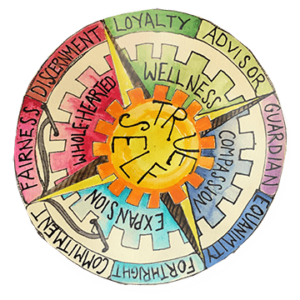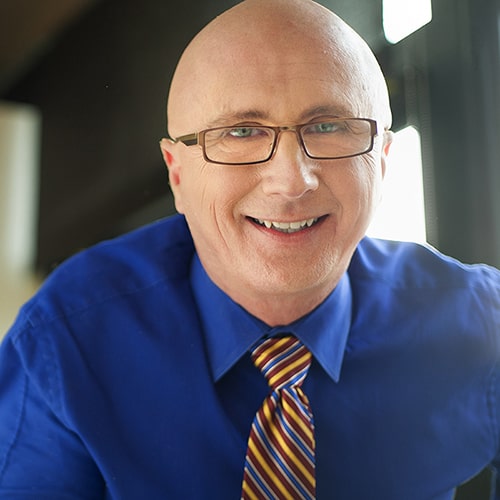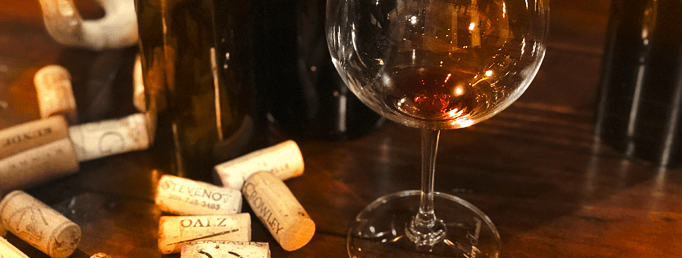Four months ago I was at a fundraising event and I’d just met a gentleman when he asked me a question that I generally steer clear of discussing: “What do you do for a living?”
I answered (with hesitation) “I’m a lawyer.”
“What type of law do you do?” he asked. 
“I’m a personal injury attorney,” I replied.
He took a step back, and with a shocked look on his face, said “Oh, you’re one of those attorneys.”
(I’ll tell you how I responded in just a moment.)
Nothing. I mean No Thing that’s good comes from being judgmental. In fact, I challenge you tell me: In what circumstances is it best to be judgmental rather than discerning? (If you have an example, please let me know in the comment section of this post.)
Have you ever felt closer to someone who’s judged you? How about feeling more open? Or did you experience a sense of self-protection, anger and shut down? Have you walked away from a situation where you were judged feeling good about the other person?
So let’s talk about discernment. It’s the cognitive ability to distinguish what’s good, safe, or appropriate for oneself. It is NOT making a moral determination about someone else’s behavior. That doesn’t mean we don’t distinguish good from bad or moral from immoral actions. It simply means we avoid a mental state that constantly judges the world around us.
The gentleman who asked me what I did for a living clearly didn’t want to know anything about the work that I do because he already had an opinion, especially about personal injury lawyers. Had he wanted to understand, he could have asked:
- When did you decide to become a lawyer?
- Why did you decide to become a personal injury lawyer?
- What do you like about the work you do?
Using our good judgment is not being judgmental. Using good judgment is being discerning about a person, situation or object.
The gap between being judgmental and discerning is staggering. One leads to openness, understanding, civility, and healing. The other leads to anger, closed-mindedness, rude behavior, and separation — none of which are synonymous with healing.
I’ve been working on not being judgmental for the last two years. The biggest challenge I’ve had with it is how insidiously it slips into my way of being, seemingly without me noticing. It’s only through intentionally raising my awareness that I’m able to see the rocks it hides under.
Here’s an example of some of the everyday judgmental thoughts that have crossed my mind:
To the person on the street corner or standing in front of the local grocery store with a sign asking for money: “They could get a job if they wanted to. They just don’t care.”
To the person who cut me off on my way to work: “How rude. What a jerk. Do they even know how to drive?”
Some of the worst judgmental thoughts I have are reserved for myself: “You’re an idiot.” “Are you ever going to figure it out? How stupid are you?” “You screwed up again, nice going moron.”
The things I say to myself I’d never — I mean never — say to someone else. They’re mean and nasty. If I heard a friend talking about themselves like that I’d remind them, “You shouldn’t talk to yourself that way. That’s not kind and it’s not true.”
Being judgmental about myself, or anyone else doesn’t help me explore, understand, or solve a problem better. Rather, it shuts me down. It narrows my thinking. It lessens my creativity. I have to get over the side effects of self-judgment to start to understand better what’s going on and how to fix it.
What I try to do now when I catch myself being judgmental in my thoughts is say, “I made that mistake again. I wish I didn’t do that. I don’t like that I did that. I wonder why I did it again. What can I do differently next time?”
The first critical step in the process of minimizing judgmental thoughts is to understand that they do not actually help me, or anyone else.
The second step is to increase my awareness when these thoughts show up. The more aware I am of them — even when they hide under stones and in holes in my mind — the easier it is to lessen their effect in my life.
Lastly, don’t get judgmental about finding judgments hiding in your mind. We all have them. It’s a part of being human.
On the flip side, when I can see that I’m being judged by others, it allows me the freedom to better determine how I choose to respond (just like with my new found friend at the fundraiser). Here’s what I said to him, “I love being a personal injury lawyer. I help people who are injured and thrown into a system that’s not designed to help them. I find great personal meaning in the work I do.”
I could have said nothing, but then I would’ve been mad at myself later.
I could have gotten angry, said something that I wished I hadn’t said, and been mad at myself — although justified.
Or, I could (and did) respond with what my truth is. I felt good about what I said and didn’t contribute to a situation ripe with negative potential.
Being kind and understanding doesn’t mean being soft or letting a behavior slide by. It’s about creating an environment that is all about allowing the greatest potential to emerge.
What areas of your life do you find yourself being judgmental? What are some of your self-judgments? Do you believe you’d be better without them or do you see them as helping you perform better?
There are fascinating articles on the differences between using our discernment and being judgmental. Here are two:
From AwakeningSelf.com: Judgement vs. Discernment
From Psychology Today: Don’t Be Judgemental, Be Discerning






Thought provoking article, Jim. Lately I see a lot of judgement in political discussions. It seems that once people put a label on you (liberal, conservative, republican, democrat, libertarian, etc) a certain laziness creeps in and curiosity is replaced by dogma. I do it too. I like the questions you listed that you should have been asked. It’s understandable that labels will trigger these knee jerk reactions in us, but I like your way of fighting those reactions with genuine curiosity as an antidote.